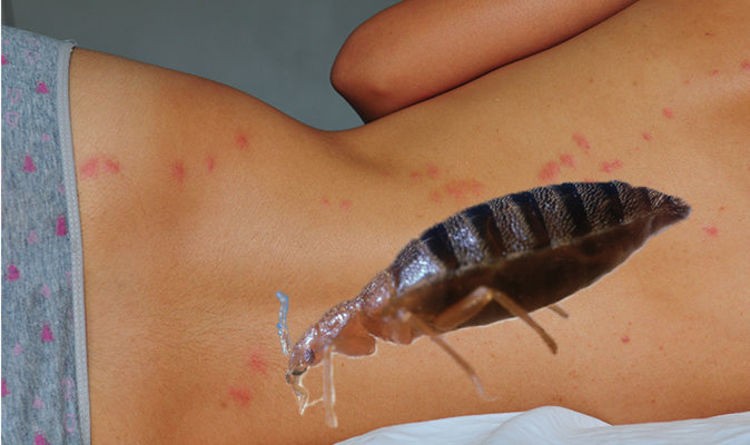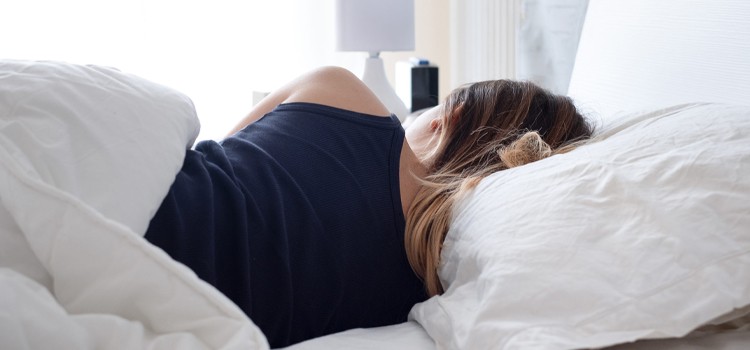Bed bugs are a living nightmare. It is impossible to comprehend how much they can lay havoc in your life if you’ve only heard of them in stories. A research study suggests that bed bugs and their bites’ effects on your life are physical and psychological. The most common psychological effects include nightmares, hypervigilance, and anxiety.
Nonetheless, it is not all doom and gloom because you can take some measures to prevent bed bugs from biting you. This post takes you through everything you should know to prevent bed bugs from biting you.
Table of Contents
Why bed bugs only bite you
Bed bugs often prefer certain people over others, but this is not true. This thought stems from different reactions to bed bug bites. Two people will sleep in a bed bug-infested bed, but one may have itchy, painful swelts all over the body while the other will appear unfettered. There is an explanation for this.
The reactions to these bites usually range from adverse effects to mild and possibly unnoticeable ones. Adverse reactions include anaphylactic shock, itchy, painful swelts, swollen veins next to bites, broken skin from scratches, anemia, and psychological implications like trauma. The lucky few cannot have any noticeable reactions to bed bug bites and may seem unbitten even when they are. This is why people with worse reactions think they are more susceptible to these pesky bugs than others.
Studies have been done to see whether bed bugs prefer certain host types. Do they like humans, or would they thrive better with other animals? Research shows that human blood is most suitable not only for bed bug existence but also for breeding. Human blood contains nutrients and compounds more likely to sustain bedbug life than other animals. Blood sources from other animals caused reduced fecundity among bugs.
That said, there are no conclusive studies to prove that bed bugs prefer certain blood groups among humans. These critters have a feeble vision and rely on smell, warmth, and respiration to find hosts for feeding. There have been suggestions that the blood group ‘O’ gives off more body heat than the other blood types and hence will more likely attract bed bugs. However, no studies are conclusive on this matter. Other factors like alcohol, proximity to infested areas, and, most notably, these bugs will not be picky if blood source is scarce.
Things that attract bed bugs to bite you
Bed bugs are not attracted by many things that most people think, for example, dirt. Instead, here are some of the things that help bed bugs find you:
- Our respiration is one of the most significant factors that attract bed bugs to us. These primarily nocturnal insects are adapted to sense carbon dioxide in our breath. At night, our breathing is regular, and our movements are restrained. This means that more carbon dioxide is emitted and trapped around us. Moreover, bed bugs tend to be concentrated around areas with more carbon dioxide concentration. Some studies have been done to use carbon dioxide to trap these bugs.
- Body heat has also attracted bed bugs to human hosts for blood. Our body temperature range is suitable for bed bugs. Research has been done that identifies 23°-48° C as the best stimulus for bed bug attention.
- Histamine. Studies have proven that bed bugs communicate with each other by also secreting the chemical histamine to signal that there is a food source and it is safe to feed. This is also what gets them to feed on you at night. That hormone your body produces as a reaction to infection has also been shown to be a factor attracting bed bugs.
Bed bug bites that you can expect per night.
The most annoying and equally impressive trait of bed bugs is their ability to adapt to changes in their surrounding. These primarily nocturnal pests that fed only at night have now taken their activities to during the day. This means you will still likely be bitten while watching a movie during the day. Despite these, they still feed the most at night. Many factors will influence the intensity of bed bug bites you will get.
Bed bug bite intensity varies according to the infestation size and location. The bigger the infestation size, the more bed bug bites you will wake up with in the morning. These bites are usually concentrated on exposed parts like the arms, back, face, neck, and legs. Relaxing in an infested spot will attract hitchhikers and subsequent bed bug bites.
A lot of factors come to play in influencing the number of bed bug bites that you will often get at night. The most notable aspect is that these bugs bite more during warm weather than when the night is cold or freezing. They tend to be inactive during cold weather and bite less. When the night is warm, they feed a lot, hence the many bites.
A study by the University of Kentucky pointed to previous exposure as a significant influence on the intensity of bed bug bites. The initial bed bug bites are less painful or swollen and may sometimes be unnoticeable. It is the subsequent bites that swell and itch a lot. This is why habitual occupants of an infested house will have higher bite intensities than visitors.
Preventing bed bugs from biting you
Preventing bed bugs from biting you is essential because it relieves you as you try to deal with them. Here are some bite prevention measures that will work:
Mattress encasing
Refrain from overruling plastic mattress encasements to prevent bites from bed bugs. These covers, when used well, will prevent bed bugs from reaching and infesting your mattress. On the other hand, if the mattress is already infested, the encasing will bed bugs trapped in the mattress away from you and hence effectively saving you from nasty bed bug bites in the morning.
Vacuuming and decluttering your environment
When done well, vacuuming reduces the number of bed bugs that infest your home. There are available attachments like the crevice tool that will also help to scrape bed bug eggs and to reach hard-to-reach areas like cracks, joints, and crevices. It is also essential to remember that while bed bugs are not necessarily attracted to dirt, clutter offers them accessible hiding spots.
Heat treatment
This is one of the most effective and even eco-friendly options available. If you can afford it, affordable portable heaters will effectively handle your bed bug problem and kill bed bug eggs. Laundering with a washing machine and dryer will serve you well if you work on a budget.
Separate your work and outdoor clothes from your indoor clothes
Recent years have seen a resurgence in bed bug infestations countrywide. Even worse, bed bugs are challenging to spot, especially with small infestations. Your outdoor clothes may carry these hitchhikers you may have picked. This is why you will keep them in air-tight plastic bags or throw them in hot water laundry as soon as you are in the house.
Getting rid of bed bugs
Several methods prevent bed bugs from biting you as you sleep. Nonetheless, the best you to prevent bed bugs from biting you is to get rid of them. Here are some safe and effective treatment methods that you can use to kill bed bugs:
Silica gel
The most effective way to prevent bed bug bites is to kill bed bugs. And what better way to do this while being environmentally conscious than with Silica gel? Silica gel is a desiccant that dries out the outer bed bug cuticle leaving them to dry and die under harsh external conditions.
Essential oils.
Several essential oils repel bed bugs and prevent them from biting you when sleeping. These are a great way to kill bed bugs or ward them off without the adverse side effects of commercial pesticides on you, your pets, or the environment. These essential oils will also soothe your itchy bed bug bites in diluted form.
Hot water laundering
The drier and laundry machine is a great way to eliminate bed bugs and their eggs on your clothes, bedding, and other garments. First, separate delicate and colored clothes. Then set the laundry machine to 140° F (60° C) and wash your clothes. After that, take them out and put the drier in the highest setting before throwing in the clothes. Separate your washed clothes from the other regular ones.
Regular vacuuming
Vacuuming works to reduce bed bug strays and their eggs. It is especially effective with small infestations. Concentrate on potential hot zones like bed joints, mattress seams, crevices, and cracks that may house these critters. Alternatively, you could invest in a commercial bed bug vacuum cleaner with a crevice tool to ease your vacuuming needs. This is great because it is readily available in your home, and you would not have to deviate from your everyday house chores.
Final thoughts
Bed bug bites tend to vary from person to person ranging from adverse conditions that require medical attention to mild unnoticeable ones. Either way, there are many things you can do to prevent them from biting you. Ultimately, the best option is to carry out an offensive on the. Bed bug elimination is the best way to avoid bed bug bites. There are many safe, effective treatment options that you can use to treat bed bugs on your own.
FAQs
Does leaving the light on prevent bed bugs from biting you?
No. A bed bug can still move in the light to bite you.
Can you apply pesticides on yourself to prevent bed bugs from biting you?
No. Pesticides are made of highly toxic substances that could cause adverse reactions on you and even possibly death.
What is the time between a bed bug bite and when you start seeing a reaction?
It typically takes one to several days to get a reaction after getting bitten by a bed bug.


